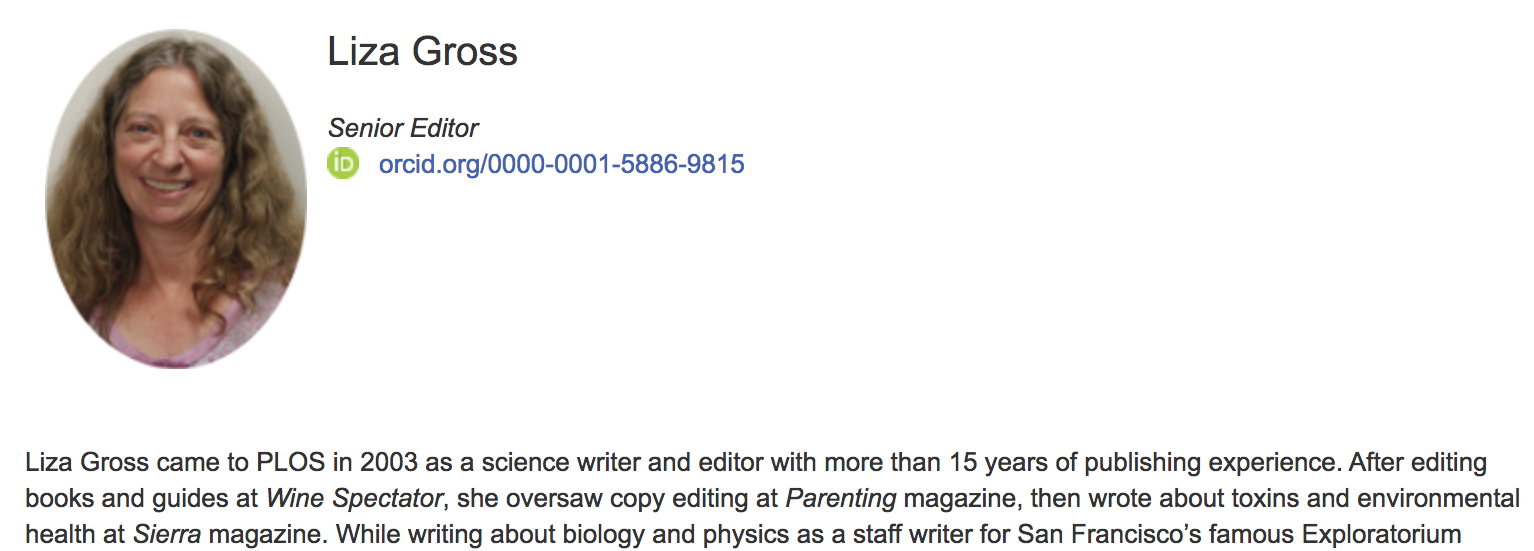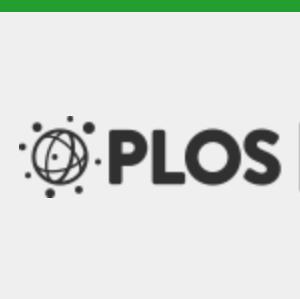In a world of fake news, scientists tend to find comfort within the pages of the scientific literature. While peer review is far from perfect and science often wrong, the process finds the truth in the long-run.
The gatekeepers of science -- that is, the people tasked with editing the scientific journals -- have an incredibly important job. They must decide which research deserves to be published and which does not. Other journal editors publish essays and articles for general consumption rather than scientific manuscripts. Regardless of one's exact role, what all editors have in common is the privilege of facilitating dialogue among the scientific community and its stakeholders.
As we have rightly come to expect, with great privilege comes great responsibility. That's why it is vitally important for journal editors to not only be wise but academically credentialed.
And that's why it is distressing that a "senior editor" at PLoS Biology, a major open-access journal for the biological sciences, has no formal education in biology. Worse, she uses the prestige associated with her position to engage in scientifically dubious political activism.
Should Political Activists Be Journal Editors?
PLoS Biology is a fine journal. The PLoS family of journals helped pioneer the open-access movement, garnering both goodwill and a good reputation along the way. That was not a trivial accomplishment. Indeed, many open-access journals are predatory or full of disreputable nonsense.
The editorial staff of PLoS Biology consists of respectable scientists, all with PhDs, except for one: Liza Gross. Her expertise includes editing Wine Spectator, Parenting magazine, and Sierra magazine, the latter of which is published by the Sierra Club, an organization of environmental activists.

According to her LinkedIn profile, Ms. Gross holds a bachelor's degree in political science but has no graduate degree. Crucially, she has no formal education in biology or any other science.
Ms. Gross is on our radar because it has come to our attention that she published two articles mentioning our organization, one for The Verge and one for Reveal. (We refuse to link to them.) The former is particularly egregious, the gist of which is that e-cigarettes are dangerous and ACSH supports them because we are a front group for Big Tobacco. Both of her claims are outrageous lies.
Gross Distortion: A Profile in Activism
ACSH has been anti-tobacco since its founding in 1978. Living in the real world, however, we realize that some people will choose to smoke cigarettes regardless of our position. For these people, especially those who want to quit, we advocate strongly for harm reduction: i.e., we believe that smokers should adopt habits that are less destructive to their health.
For many years, the only products for those seeking to become ex-smokers included nicotine patches and gum. Recently, e-cigarettes have provided the opportunity for people to engage in a behavior that looks and feels like smoking but is 95% safer, according to the UK's NHS. Though we believe, and have explicitly stated, that people who use neither cigarettes nor e-cigarettes should not begin vaping for the fun of it, we believe that e-cigarettes are an important tool in helping current smokers quit.
We are in good company. The UK's National Health Service agrees with us.
None of these facts matter to Ms. Gross. In her article, she dismisses any evidence that e-cigarettes are a safer alternative to cigarettes as industry propaganda. Amazingly, Ms. Gross even concludes that the UK's NHS has been duped by Big Tobacco. She justifies this conspiratorial worldview through the embarrassingly simplistic (and thoroughly incorrect) assumption that any research funded by industry is biased. Naturally, anyone who disagrees with her is bought off by corporations.
It's highly doubtful that PLoS Biology would have published a paper that employed such sloppy and borderline libelous argumentation. So, why does the journal find it acceptable for its senior editors to engage in it?
Why Is Liza Gross on the PLoS Biology Editorial Staff?
Truly, such reasoning is typical not of scientists but of scientifically illiterate activists and conspiracy theorists. Scientists know that the source of funding matters little to the validity of research. Indeed, about 2/3 of research funding in America comes from industry. Either the science is accurate or it is not. Debates, therefore, should be focused on the merits of the research, not on who paid for it. Of course, having no formal education in the field, Ms. Gross bypasses intellectually rigorous discourse and predictably falls back on the "follow the money" fallacy.
This isn't the first time that Ms. Gross has done so. Writing in The Intercept, she unfairly criticized Sense About Science, a "charity that challenges the misrepresentation of science and evidence in public life," because it sometimes supports science that was funded by industry. Once again, the accuracy of the science is not a consideration for Ms. Gross. (As an interesting side note, The Intercept was founded by American journalist Glenn Greenwald, who colluded extensively with WikiLeaks in its largely successful effort to undermine U.S. national security.)
That a person with such a hostile view toward industry-funded science serves on the editorial board of a major scientific journal is disturbing. That she possesses no academic qualifications to justify her position as "senior editor" is a scandal.
We reached out to Ms. Gross for comment, but she did not respond. Perhaps PLoS Biology will.




